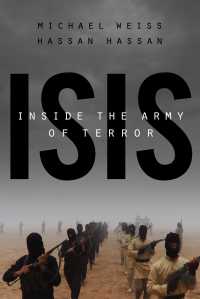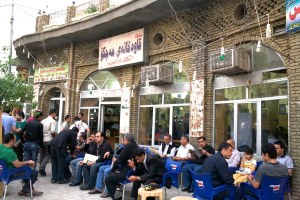 Meticulously researched and fluently written, Muhammad Idrees Ahmad’s “The Road to Iraq: The Making of a Neoconservative War” is the comprehensive guide to the neoconservatives and their works. The book’s larger story is of the enormous influence wielded by unelected lobbyists and officials over the foreign policies of supposed democracies, their task facilitated by the privatisation and outsourcing of more and more governmental functions in the neoliberal era. (Similar questions are provoked by the state-controlled or corporate media in general, as it frames, highlights or ignores information.) The more specific story is of how a small network of like-minded colleagues (Ahmad provides a list of 24 key figures), working against other unelected officials in the State Department, military and intelligence services, first conceived and then enabled America’s 2003 invasion and occupation of Iraq, a disaster which continues to overshadow regional and global relations today.
Meticulously researched and fluently written, Muhammad Idrees Ahmad’s “The Road to Iraq: The Making of a Neoconservative War” is the comprehensive guide to the neoconservatives and their works. The book’s larger story is of the enormous influence wielded by unelected lobbyists and officials over the foreign policies of supposed democracies, their task facilitated by the privatisation and outsourcing of more and more governmental functions in the neoliberal era. (Similar questions are provoked by the state-controlled or corporate media in general, as it frames, highlights or ignores information.) The more specific story is of how a small network of like-minded colleagues (Ahmad provides a list of 24 key figures), working against other unelected officials in the State Department, military and intelligence services, first conceived and then enabled America’s 2003 invasion and occupation of Iraq, a disaster which continues to overshadow regional and global relations today.
The first crop of neoconservatives emerged from a Trotskyist-tinged 1930s New York Jewish intellectual scene; they and their descendants operated across the political-cultural spectrum, in media and academia, think tanks and pressure groups. Hovering first around the Democratic Party, then around the Republicans, they moved steadily rightwards, and sought to form a shadow defence establishment. During the Cold War they were fiercely anti-Soviet. Under George Bush Jr. they shifted from the lobbies into office.
The neoconservative worldview is characterised by militarism, unilateralism, and a firm commitment to Zionism. Even the Israel-friendly British Foreign Secretary Jack Straw said of neocon Irving Libby: “It’s a toss-up whether Libby is working for the Israelis or the Americans on any given day.” The neoconservatives aimed for an Israelisation of American policy, conflating Israeli and American enemies, and adopting their doctrine of ‘pre-emptive war’ from Israel’s 1967 war on the Arabs.
Lest we slip into antisemitic tropes (hidden cabals conspiring on international Jewry’s behalf), let’s remember that the neoconservatives form a tiny minority within a generally much more liberal American Jewish community. (The Israel lobby as a whole is much more hawkish than American Jewish opinion – the former aggressively lobbied for war against Iraq while the latter was much more opposed than the American mainstream).
And the neoconservatives weren’t the only factor. Ahmad recognises the military industrial complex is always enthusiastic for war, and writes “The neoconservatives succeeded because they operate within a political consensus that sees US global dominance as the desired end and military force as the necessary, if not preferred, means.” Nevertheless, the fact that neoconservatives were placed well enough to exploit the terrorist attacks of September 11th 2001 was the crucial element in the decision to invade.
The neoconservatives wanted (through ‘creative chaos’) to remake not only Iraq but also Iran, Syria, Lebanon, and even such crucial American allies as Saudi Arabia. Yet their messianic vision didn’t dominate administration ‘realists’ (Colin Powell and Richard Armitage were working on ‘smarter’ sanctions to contain the Iraqi regime) until the ‘catalysing event’ of 9/11.
They immediately seized the opportunity to establish a link between al-Qaida and Saddam Hussain, promoting claims made by Laurie Mylroie, who had also, improbably, held Iraq responsible for the 1995 Oklahoma bombing and the 1993 World Trade Centre attack. This misinformation sold the war to the public. A 2004 poll showed 74% of Americans believed the Iraq al-Qaida link; 85% of American soldiers polled in 2006 believed their role in Iraq was to retaliate for 9/11.
Within the administration, Dick Cheney, a ‘robust nationalist’ and probably the most powerful vice president in American history, championed neoconservative perspectives and propaganda. Supposed evidence of Iraq’s WMD programmes was entirely furnished by the neoconservatives and their allies. The Pentagon’s Office of Special Plans, for instance, set up by neocon Douglas Feith, relayed questionable Israeli intelligence to the White House and played up the ‘imminent threat’ posed by Saddam. That unfounded allegations were presented as casus belli to the United Nations was not an ‘intelligence failure’ but, Ahmad proves, the result of a very successful process of suppressing, spinning or promoting information for the sake of invasion.
Cheney was motivated not by neoconservative ideology but by a hardnosed (and unrealistic) realism. 9/11 for him was an opportunity to make an example of an easy target (North Korea and Iran, the other members of the ‘axis of evil’, were too difficult). But he was greatly influenced by neoconservative orientalist and popular historian Bernard Lewis, who held Arab rage against the West to be purely cultural, not political, and believed Arabs only understood the language of force. These assumptions played a part in ‘shock and awe’ over Baghdad; orientalist theories – in this case of Arab masculinity, straight from Israeli torture guides – were applied again in the sexual humiliations at Abu Ghraib.
Against Cheney’s hopes, Iraq proved America’s weakness rather than its strength. The American public was briefly awed; the rest of the world was only shocked by American recklessness. More Iraqi post-war oil contracts were awarded to states which hadn’t intervened than to those which had, while Sunni and Shia insurgencies steadily bled American lives and morale, and the region plummeted to greater depths of polarisation and instability.
Neoconservatives had hoped Saddam’s deposal would be followed by regime change in Iran, or at least a radical weakening of the Iranian theocracy, but this was their most dramatic miscalculation. Strengthened by the removal of hostile regimes in both Iraq and Afghanistan, Iran took advantage of the new sectarian order to embed itself in Iraqi politics. In Syria today, Iranian-backed sectarian militias from Lebanon, Iraq and Afghanistan are fighting on Assad’s frontlines. Iran has not been challenged on this policy, despite it constituting a major factor in the rise of Sunni sectarianism and groups such as ISIS.
By the end of Bush’s presidency, the ‘realist’ realisation that Arab democracies would produce economically nationalist and anti-Zionist governments (as the Palestinians voted for Hamas) was reasserted, and so therefore was the traditional dictator-friendly policy. Stung by Iraq and economically weak, the US under Obama attempted and failed to disengage from the region. Obama set ‘red lines’ and ignored their crossing; he let his Sunni regional allies arm Syrian resistance groups ineffectually and in mutual competition; he blocked them from providing the heavy weapons necessary to resist Assad’s scorched earth and the consequent refugee crisis.
Eleven years after the invasion, ‘realist’ folly has compounded neoconservative madness. One common thread between the schools is an abiding refusal to deal with the people at the grassroots struggling to improve their situation. After the 1991 Gulf War, America permitted Saddam’s defeated military to use helicopter gunships to put down the intifada in the south – the mass graves of this period incubated the later sectarian breakdown. In 2003 the neoconservatives pinned their hopes on Ahmad Chalabi’s Iraqi National Congress, an exile organisation as irrelevant on the ground as the Syrian National Coalition is today (the SNC enjoys tepid and purely rhetorical American support; the grassroots Local Coordination Committees enjoy no recognition whatsoever). And now, rather than providing effective weaponry to the Free Syrian Army which has been fighting ISIS all year, America loses hearts and minds by bombing Syria’s grain silos and oil installations.
If the region is to ever recover, imperial democracies as well as Arab tyrannies require further democratisation and greater accountability. This is one unspoken lesson of Ahmad’s very useful account.
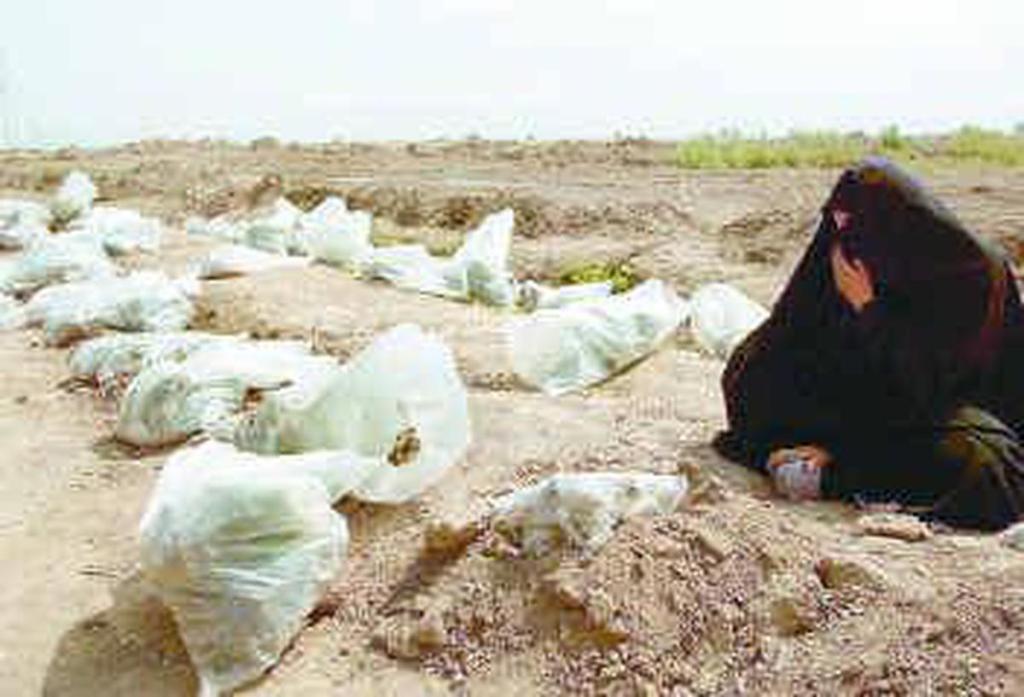
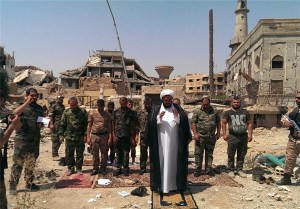
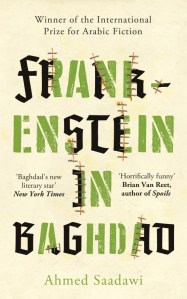 Baghdad, 2005. Occupied Iraq is hurtling into civil war. Gunmen clutch rifles “like farmers with spades” and cars explode seemingly at random. Realism may not be able to do justice to such horror, but this darkly delightful novel by Ahmed Saadawi – by combining humour and a traumatised version of magical realism – certainly begins to.
Baghdad, 2005. Occupied Iraq is hurtling into civil war. Gunmen clutch rifles “like farmers with spades” and cars explode seemingly at random. Realism may not be able to do justice to such horror, but this darkly delightful novel by Ahmed Saadawi – by combining humour and a traumatised version of magical realism – certainly begins to.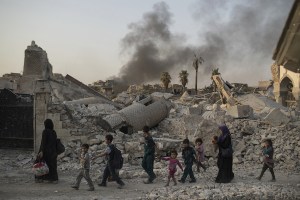
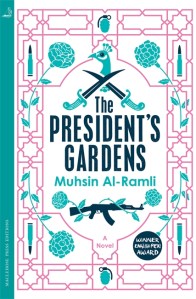 This review was published first
This review was published first 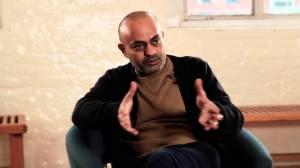 I interviewed my friend Hassan Blasim, a brilliant writer and a wonderful human being,
I interviewed my friend Hassan Blasim, a brilliant writer and a wonderful human being, 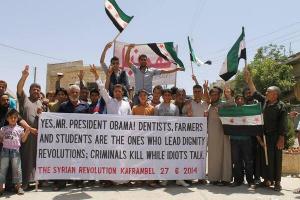 The Pluto blog has published
The Pluto blog has published 
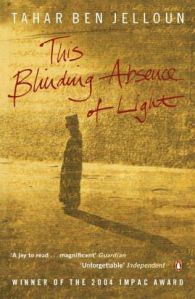 This article about Arab prison writing
This article about Arab prison writing 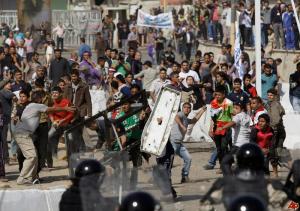 This was published at
This was published at 
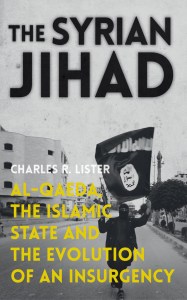 This was published
This was published 
